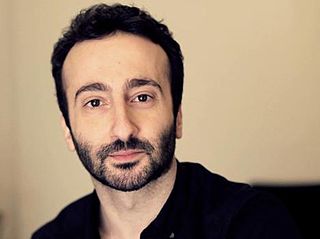A Quote by Pope Benedict XVI
We are no longer able to hear God - There are too many frequencies filling our ears.
Related Quotes
At times many of us let that enemy of achievement--even the culprit 'self-defeat'--dwarf our aspirations, smother our dreams, cloud our vision, and impair our lives. The enemy's voice whispers in our ears, 'You can't do it.' 'You're too young.' 'You're too old.' 'You're nobody.' This is when we remember that we are created in the image of God. Reflection on this truth provides a profound sense of strength and power.
Fame is an empty noise. Let us put our ears to the centuries that have gone: we no longer hear anything; those who, at another time, shall walk among our urns, shall hear no more. The good - that is what we must pursue, whatever the price, preferring the title of a dead hero to that of a living coward.
The most sensitive frequencies are at the resonant frequencies of the auditory canal. In other words, the ear has shaped itself to naturally amplify certain bandwidth. And that corresponds to sounds in that bandwidth that were most important to our evolving ancestors to hear, in order to survive. And it doesn't match the human voice. It matches birdsong.
Many of us have a tendency to forget the Gracious Hand which has preserved our nation, enriched it, strengthened it. Many of us imagine in the foolishness of pride, that our manifold blessings are due not to God's goodness, but to our own wisdom and virtue. Too many of us have been so drunk with self-sufficiency as no longer to feel the need of prayer.
The beginning of prayer is silence. If we really want to pray we must first learn to listen, for in the silence of the heart God speaks. And to be able to see that silence, to be able to hear God we need a clean heart; for a clean heart can see God, can hear God, can listen to God; and then only from the fullness of our heart can we speak to God. But we cannot speak unless we have listened, unless we have made that connection with God in the silence of our heart.
The fruit of our labors is sweet when the work is consecrated to God. But we have to be able to weather the conditions - the winds, the rain or the drought, the brilliant sun and sometimes the bitter cold. Sometimes our work needs to be directed at improving our ground rather than excusing our own harvests because the place we have been given is a little hard; there are too many rocks, too many hills, too little top soil. If we focus on where we are instead of what we can do with our plot, we will find our efforts significantly diminished.
Now, brethren, this is one of our greatest faults in our Christian lives. We are allowing too many rivals of God. We actually have too many gods. We have too many irons in the fire. We have too much theology that we don't understand. We have too much churchly institutionalism. We have too much religion. Actually, I guess we just have too much of too much.
...I do like the low frequencies. It's from years and years of observing audiences when they hear a lower frequency coming from an instrument it tends to pull them in. You have to listen a little more attentively. High frequency instruments hit you so hard, after a while the ear has a tendency to want to shut down. And that's what happens. I've been able to observe very carefully how people tend to get very tired of listening to high frequencies a lot.
This is what life is about. It is being sent on a trip by a loving God, who is waiting at home for our return and is eager to watch the slides we took and hear about the friends we made. When we travel with the eyes and ears of the God who sent us, we will see wonderful sights, hear wonderful sounds, meet wonderful people ... and be happy to return home.


































